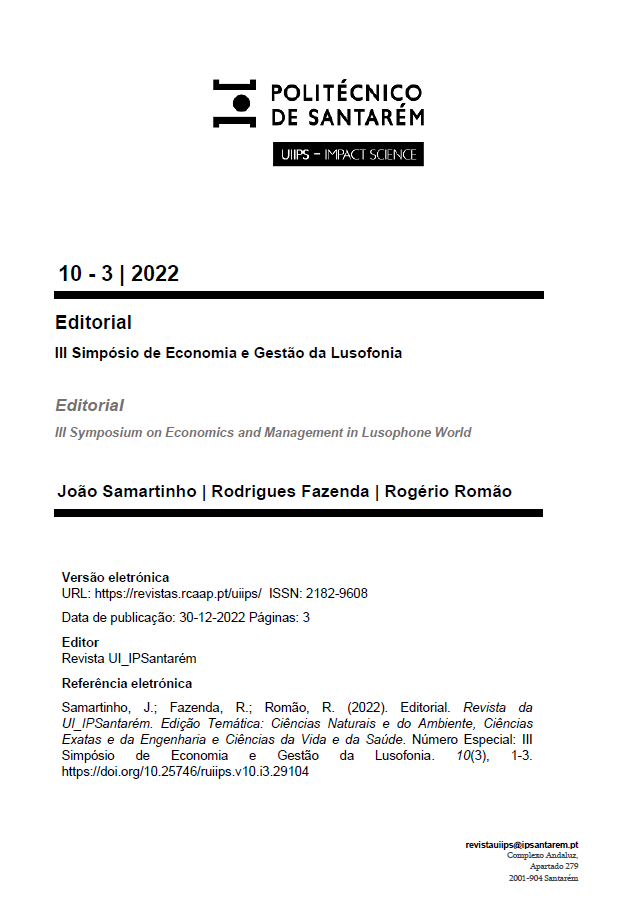Attendance and waiting time at the pediatric emergency department of the Coimbra University Hospital (H.P.U.) Angola
Life and Health Sciences
DOI:
https://doi.org/10.25746/ruiips.v10.i3.29122Keywords:
care, waiting time, quality of service, health service, patients, Uíge/AngolaAbstract
The management of care and waiting queues in public health services is very complex because these are social services most requested by the population. Waiting queues have a negative influence on patients' perception of the quality of care and service provided, and can be the cause of worsening illnesses and death. The general objetive of this exploratory study is to improve the quality of care in public service systems, reducing the waiting time in queues at the pediatric emergency room of the provincial hospital in Uíge. The specific objective is to determine decision variables such as average waiting and service times, average number of people waiting in queues to be attended, in the health systems of the pediatric emergency department of the provincial hospital of Uíge in Angola, giving contribution to the effective reduction of waiting time in queues. With the proposed M/M/3 model and applying the quantitative method, the results obtained demonstrate that it is possible for the manager to identify decision variables and reduce the waiting time in queues, preventing and minimizing their negative impacts.
Downloads
Published
How to Cite
License
Copyright (c) 2022 Lutanadio Mavakala

This work is licensed under a Creative Commons Attribution-NonCommercial-NoDerivatives 4.0 International License.
Authors publishing in this journal agree to the following terms:
Authors retain copyright and grant the journal the right of first publication, with the article simultaneously licensed under the Creative Commons Attribution License that allows sharing of the work with acknowledgement of authorship and initial publication in this journal.
Authors are permitted to enter into additional contracts separately for non-exclusive distribution of the version of the article published in this journal (e.g., publish in an institutional repository or as a book chapter), with acknowledgment of authorship and initial publication in this journal.
Authors have permission and are encouraged to publish and distribute their work online (e.g., in institutional repositories or on their personal webpage) at any point before or during the editorial process, as this may generate productive changes, as well as increase the impact and citation of the published work.



